
MBTAAnalysis: A look inside the MBTA
0 Comments
/
The MBTA shuttles over a million passengers a day around Greater…
 https://pioneerinstitute.org/wp-content/uploads/CloseupClock-1.jpg
739
1244
Mary Connaughton
https://pioneerinstitute.org/wp-content/uploads/logo_440x96.png
Mary Connaughton2017-02-20 12:34:192017-02-21 09:47:58The Clock is Ticking…….
https://pioneerinstitute.org/wp-content/uploads/CloseupClock-1.jpg
739
1244
Mary Connaughton
https://pioneerinstitute.org/wp-content/uploads/logo_440x96.png
Mary Connaughton2017-02-20 12:34:192017-02-21 09:47:58The Clock is Ticking…….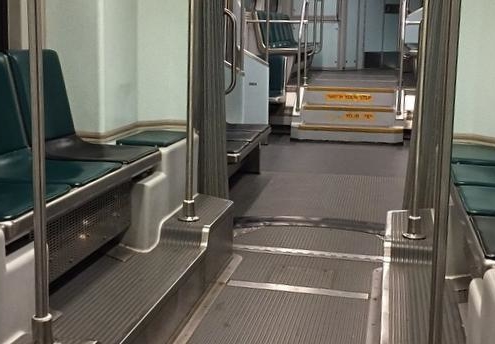
Data Reveals Out of Control Administrative Staffing Budget Increases at MBTA
Data released by the National Transit Database (NTD) reveals startling increases in MBTA expenditures on administrative personnel over the past several years, generating even more doubt surrounding the commitment of the Authority to cost-containment.

Ten Years Later: Trends in Urban Redevelopment
This report updates a 2006 study of 14 Massachusetts cities with populations of more than 40,000 and average per-capita annual incomes of below $25,000 (Pittsfield is the one city in the study in which per-capita income is greater than $25,000). It provides a report card on how these Middle Cities are faring a decade after our last analysis, in terms of economic development, financial administration, education, and public safety. The aim is to inform the current policy discourse on redevelopment strategies in these important cities to identify municipalities and policy approaches that may serve as models for all Middle Cities.
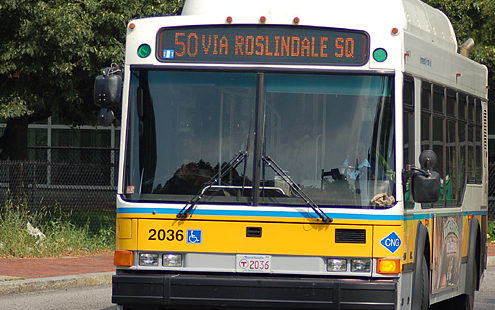
A $49 Million Sweetheart Deal How MBTA Employee Unused Sick Time Perk Enhances Pensions
Earned sick leave for T employees ranges from 12 to 15 days per year depending on an employee’s classification. Unused days accumulate into employees’ sick leave balances. The purpose of this analysis is to determine how the MBTA’s sick leave policies impact retirement payouts and how that compares to state employee benefits.

Driving Critical Reforms at DCF: Ideas for a Direction Forward in Massachusetts’ Child and Family Services
This report dissects other studies and their recommendations, with additional suggestions for a direction forward for DCF in the context of a broader discussion of the agency’s recent history and issues with mission ambiguity. The first and most important recommendation is to overhaul the current two-tiered child intake system, which should be the central focus of any changes at the agency.

An Uncertain Future for Ridesharing Services in Massachusetts
Three bills currently pending in the Massachusetts Legislature would create a regulatory structure for TNCs; two attempt to address customer safety concerns without imposing burdensome regulations, but a third bill includes at least one poison pill. A new Pioneer Policy Brief argues that rather than apply rules that have led to higher costs and lower quality in the taxi industry, Massachusetts should strive to balance adequate customer protections with maintaining the ability of transportation network companies (TNCs) like Uber and Lyft to do business in the commonwealth.
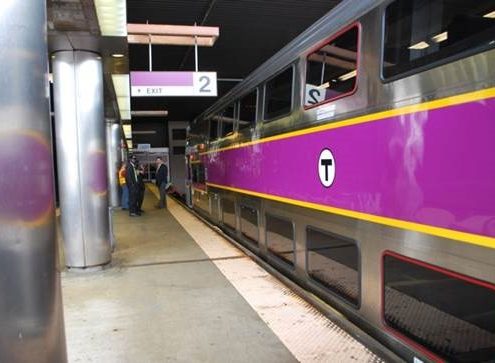
How to Save the MBTA More Than $100 million a year
This policy brief identifies three immediate measures the MBTA…

The Pacheco Law has cost the MBTA more than $450 million – here’s the evidence.
The report has three major findings—each of which demonstrates that the Pacheco Law has cost the MBTA more than $450 million since it blocked the MBTA from signing two contracts in 1997 to purchase 38.0 percent of its bus and bus maintenance service from private companies.
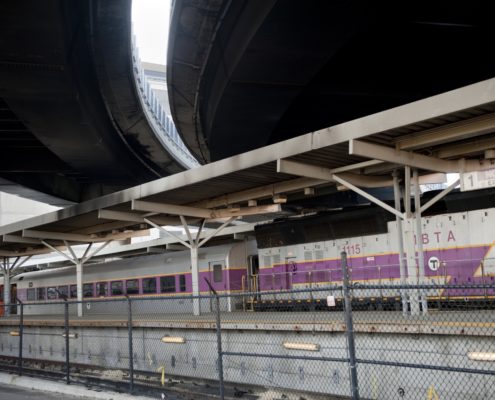
MBTA Reform – The Case of Full, Final and Binding Interest Arbitration
A study of thousands of pages of interest arbitration documents stored in Superior Court argues that full, final and binding interest arbitration involving the MBTA circumvents the power of all three branches of government and leaves a single, unelected individual in the role of decision-maker on contract disagreements with tens of millions of dollars at stake.

Analyzing the Convention Center Authority’s Inflated Claims
The analysis reveals that only eight events booked at the BCEC over the next 13 years - not 18 as the MCCA has claimed - have escape clauses that allow them to go elsewhere if expansion doesn’t go forward. It also finds that despite claims that the facility would not be able to host the BIO conference again without expansion, the show is booked five times between 2021 and 2029 without expansion-related escape clauses.

Testimony Before the Joint Committee on State Administration and Regulatory Oversight Regarding Government Transparency
Mary Connaughton provides testimony before the Joint Committee on State Administration and Regulatory Oversight regarding government transparency.
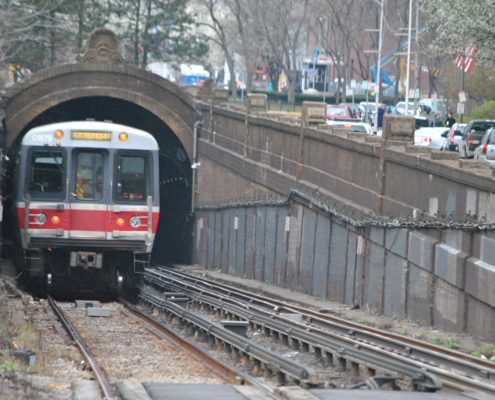
Testimony in Support of House 3347 Transportation Reform
Charles Chieppo provides public testimony before the Joint Committee on Transportation in Support of House 3347.
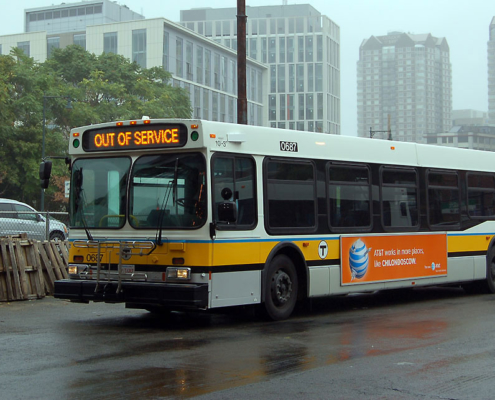
Testimony Before the Joint Committee on Transportation in Support of House 3347
Greg Sullivan provides public testimony before the Joint Committee on Transportation in Support of House 3347.
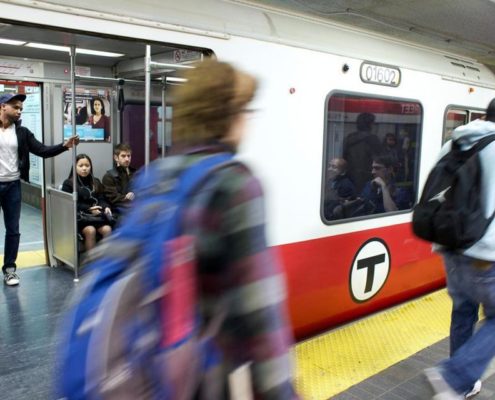
Guess Who Runs the Best Paratransit System in the MBTA’s District? Hint: It’s Not the T
This report concerns The Ride, the MBTA’s demand-response paratransit service. Using data from the National Transit Database, the primary federal repository of transit related data and statistics in the United States, and public reports of transit agencies and transportation organizations, this report compares the Ride’s cost efficiency and operating practices with those of other Massachusetts paratransit systems, including those of 13 Massachusetts regional transit systems and of the Human Services Transportation Office (HST) of the Executive Office of Health and Human Services (EOHHS).
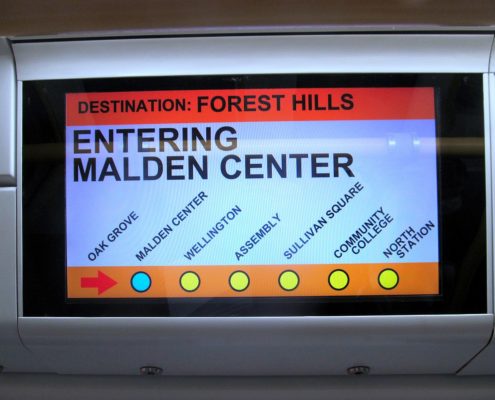
MBTA’s Problem Is Not Lack of Funding
This report presents a comparison of the MBTA’s capital and…

The MBTA Commuter Rail’s Cost Structure is Off the Rails
This report analyzes the MBTA’s commuter rail services compared to the commuter rail system the Integrated National Transit Database Analysis System (INTDAS) rated as most similar, the Southeastern Pennsylvania Transportation Authority (SEPTA). SEPTA operates 13 branches to more than 150 stations in Philadelphia and
its suburbs. This brief contains five important findings.

Massachusetts Experience with Hard and Soft Receiverships
Last week Pioneer Institute called for the MBTA to be placed in “soft receivership,” or what is often called a finance control board. The purposes of this policy brief are to consider Massachusetts’ experience with two recent receiverships, and to provide useful background for the new special commission established by Governor Charlie Baker to analyze the causes of the current situation at the MBTA and the reforms and governance changes needed to improve it.

MassPensions.com Update on Public Retirement Systems
Pioneer Institute is releasing an update to MassPensions.com with new data from the Public Employee Retirement Administration Commission about the status of the 105 Massachusetts public pension systems at the beginning of 2014. Retirement boards have continued on their path of lowering assumed rates of return (ARRs) towards more reasonable levels. However, funding progress for most systems remained stilted, as 22 local boards extended their funding deadlines by up to eight years.

Rebuilding the Ladder to Self- Sufficiency: Workfare and Welfare Reform
The full implementation of welfare reform in Massachusetts required a waiver from the federal government. The commonwealth requested such a waiver to allow for the work requirement, time limits, job training, and the centralization of its public assistance system. The waiver was granted for all except time limits.

The Logic of Pension Valuation II: A Response to Andrew Biggs
For quite a few years now, public pension liabilities have been a growing concern for policymakers and public finance professionals. The methods used to value the liabilities are fundamentally important both for designing plan policies and for plan administration. They are an essential tool for budgeting because they help account for the costs of public services and create appropriate funding schedules for plan contributions to ensure the fiscal soundness of both the plan and its provider.
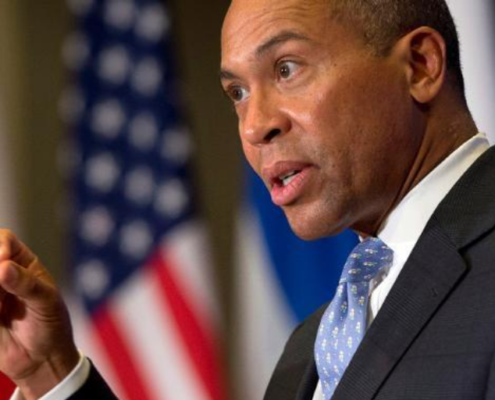
The Good, the Bad and the Ugly Eight Patrick Administration Budgets Later
Has Massachusetts made progress towards providing a better quality of life for its residents while maintaining financial stability over the past decade or so? In July 2014, Governor Deval Patrick signed into law the eighth and final budget of his administration with only a few vetoes and recommendations to the General Court. Five years after the financial crisis, this is an opportune moment to review and reflect upon the fiscal state of Massachusetts and what has changed since the beginning of this governorship more than seven years ago.

Hard Lessons for Institutional Investors from the MBTA Retirement Fund
This study presents the MBTA Retirement Fund (MBTARF) as a cautionary tale for institutional investors not merely with the benefit of hindsight, but as its story unfolds towards what will likely be an unfortunate conclusion.

Regaining Massachusetts’ Edge in Research and Development
Massachusetts’ ranking among the states in overall R&D spending by industry rose from fifth to second between 1991 and 2006, but although it’s ranking improved, Massachusetts – and every other state – lost market share over that period to California, which had enacted much stronger tax incentives. In fact, the commonwealth’s market share of national R&D spending by industry actually declined between 1991 and 2011. Over that same period California increased its industrial R&D spending by more than its top seven competitor states combined, including Massachusetts.

Does Boston Convention & Exhibition Center Expansion Really Pay for Itself?
With the Massachusetts Convention Center Authority (MCCA) claiming that no new taxes or fees would be needed to expand the Boston Convention and Exhibition Center (BCEC), it came as no surprise that a $1 billion convention center expansion bill sailed through a November Joint Committee on State Administration hearing without opposition. But when something seems too good to be true, it usually is, and a closer look at the convention center legislation reveals that the "no new taxes or fees" claim isn't quite as airtight as they've led us to believe.

Testimony Before the Joint Committee on Public Service Regarding the MBTA Retirement Fund
Testimony Before the Joint Committee on Public Service Regarding the MBTA Retirement Fund Provided in February 2014.

Solvency and Insolvency of the MBTA Retirement Fund
The primary goal of this policy brief is to evaluate the insinuation that MBTARF is in a position to fulfill its obligations to its beneficiaries without help from the commonwealth.

Myths and Reality about MBTA Pensions
For the past few years, officials from the Massachusetts Bay Transportation Authority (MBTA) and the MBTA Retirement Fund (MBTARF) have promoted the narrative that the T's pension system has been reformed so that benefits are "fair" and it holds no risk for taxpayers.

Testimony before the Joint Committee on Public Service of the General Court of the Commonwealth of Massachusetts Regarding the Fiscal Condition of Local Retirement Systems
Testimony before the Joint Committee on Public Service of the General Court of the Commonwealth of Massachusetts Regarding the Fiscal Condition of Local Retirement Systems provided in January 2014.

The Costs of Delaying the Funding of Public Pensions in Massachusetts
The purpose of this paper is to provide tools to quantify the costs of delaying the funding of pension obligations – those incurred in the aftermath of the financial crisis as well as projected costs more generally. Policymakers should be aware of these implicit costs when making budgetary decisions, and so should taxpayers, who ultimately are liable for what essentially amounts to a long-term financing cost for current spending.

The Logic of Pension Valuation: A Response to Robert Novy-Marx
In a recently published article,1 Robert Novy-Marx identifies what he believes are inconsistencies in the valuation methods espoused by the Governmental Accounting Standards Board (GASB). He advocates that current GASB methodologies for determining the discount rate be replaced by what some academic economists call a “fair-value” or “risk-adjusted” rate of return.

Have the MBTA’s Retirement Plans Gone Off the Rails?
The goal of this report is to highlight developments at the MBTA and MBTARF and outline a path towards improved transparency and accountability in order to secure employees’ benefits at a reasonable cost to MBTA riders and Massachusetts taxpayers.
